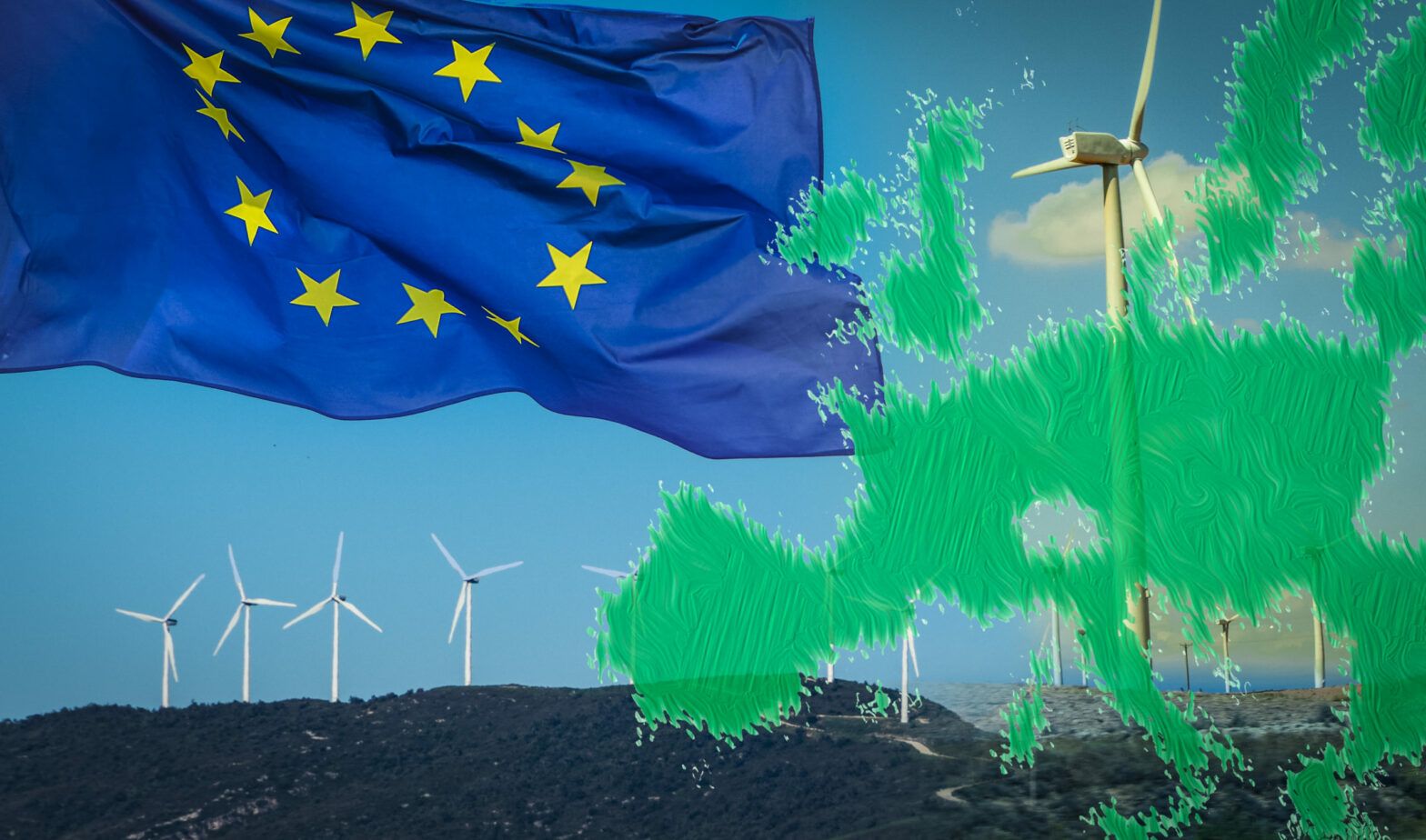Calling investments in gas and nuclear green because they are aligned with the EU sustainable finance taxonomy will amount to greenwashing, investors have been told.
The EU published a complementary delegated act (CDA) at the end of last year proposing the two contentious energy sources be labelled sustainable. Members of the EU sustainable finance platform had until 21 January to respond to the CDA.
The platform’s feedback included scathing criticism of the proposal, accusing it of being out of line with climate science.
NGO and platform member, Reclaim Finance, has said should the CDA be accepted by European institutions the onus moves to investors to reject the definitions.
Reclaim Finance regulation campaigner Paul Schreiber said: “If gas and nuclear are included, we will definitely warn investors and financial institutions that using the taxonomy as it is, especially for the financial products that are marketed as sustainable and for green bonds, will be seen as greenwashing.
“The responsibility will shift because… the effect of the taxonomy largely depends on what we do with it.”
Read more:- IIGCC calls on EU to exclude gas from Taxonomy
Schreiber said he expects financial institutions will use their own criteria for what qualifies as green investments, but suspects some of the larger financial institutions will see this as an opportunity to invest in gas and nuclear while saying “it’s the taxonomy, it’s not me. I’m just funding taxonomy-aligned activities and contributing to the EU transition.”
Environmental harms
The sustainable finance platform expressed “deep concerns” about the environmental impact of the proposed definitions. The group’s feedback to the EU stated: “…a new facility generating energy from gaseous fossil fuels would start operation with emissions above the level of Do No Significant Harm and would not be required to reach the substantial contribution [to 2050 climate neutrality goals] level at any stage over 20 years.”
The World Wide Fund for Nature (WWF) accused the EU of turning the taxonomy itself in to greenwashing, noting the European Commission’s proposal that new gas plants be deemed green as soon as 2023 if they promised to shift to renewable gases by 2035.
WWF applauded the platform for refusing to endorse this.
In terms of nuclear energy, the platform said labelling this as a green investment activity would not be in line with “the sustainable use and protection of water and marine resources, the transition to a circular economy, pollution prevention and control, or the protection and restoration of biodiversity and ecosystems, and would require substantial changes to do so.”
New nuclear plants fail to make a substantial contribution to 2050 climate neutrality goals, the platform added.
Member states
Schreiber is not alone in predicting sustainable investing will not pay heed to the rule change should it become regulation.
Peter Liese, Member of the European Parliament, wrote in a statement: “I increasingly believe that financial investors do not need this taxonomy and that the market will regulate the problem itself. Those who want to invest in green technologies will not invest in nuclear energy.”
However, Germany has itself been criticised for has taking a strong line against nuclear energy, while campaigning for a relaxation of restrictions on fossil gas.
Spain, Austria, Denmark and Luxembourg have also openly taken a stance against the proposed taxonomy changes. The group stated in an open letter the taxonomy “seriously risks being rejected by investors.”
The letter also expressed grave concerns the proposal “puts the energy transition in the EU and globally at risk.”
Legal objections to the proposed changes are lining up with Austria and Luxembourg announcing they will bring legal proceedings in the instance gas and nuclear are included in the taxonomy.
Environmental law charity ClientEarth has said it will look at legal action if gas-based activities are “included in the EU taxonomy as transitional activities and if applicable legal requirements are not fully respected.”
Schreiber added the CDA will very likely be approved by lawmakers in the next few months, leaving litigation as the only remaining formal opposition. He said Reclaim Finance will support NGOs taking such legal action.
Lessons for the UK
With fierce opposition to the rule change from multiple angles, Ben Caldecott, director of the Oxford Sustainable Finance Programme, called the situation “An entirely avoidable mess.”
The UK Sustainable Investment and Finance Association (UKSIF) said the furore has damaged the EU’s sustainable finance leadership and called on the UK government to avoid a repeat scenario by ensuring the UK’s green taxonomy does not include gas and nuclear.
Oscar Warwick Thompson, UKSIF head of policy and communications, said: “We would urge the UK government to learn from Europe’s experience and implement a robust green taxonomy that sets the highest standard possible for green investment for the rest of the world to follow and is purely based in science, rather than driven by political considerations and certain industry interests.
“There is a clear leadership and economic opportunity for the UK, with companies and investors more likely to see our taxonomy as leading the way should natural gas and nuclear be excluded.”
Warwick Thompson said the move changes the role and purpose of the taxonomy “which is intended to be a list of environmentally sustainable economic activities to help businesses and investors track the greening of financial flows over time and tackle the serious threat posed by greenwashing.”
He said the two additional energy sources should only be considered as part of a “transitional environmental taxonomy” of activities with clear phase-out dates.
“This would help inform investors’ stewardship and engagement with these sectors and incentivise the successful transition of the real economy, of which a very small part today can be considered sustainable,” said Warwick Thompson.








